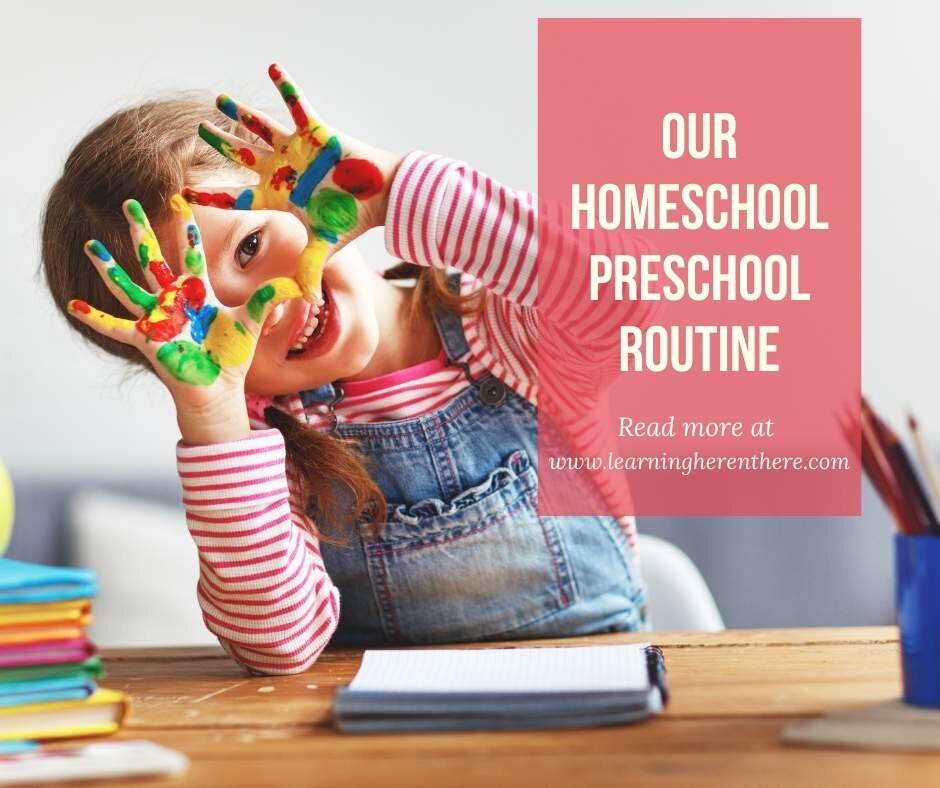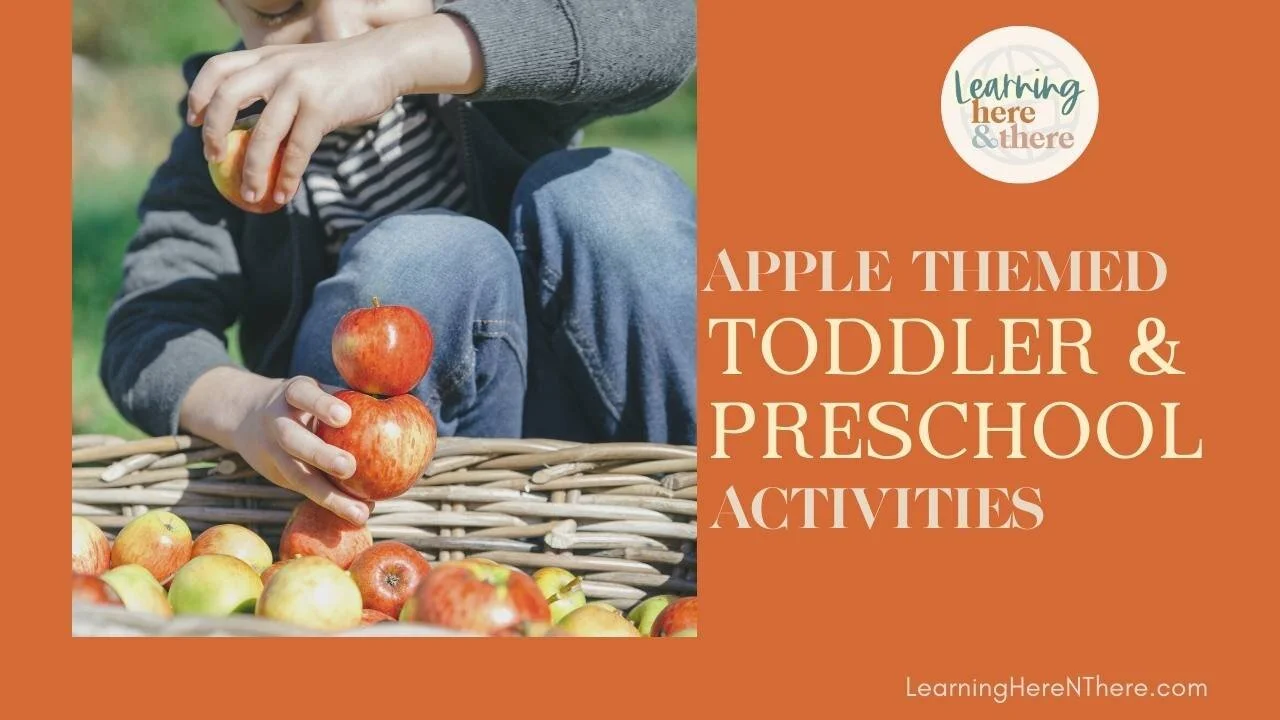Tips to make your Preschool day run smoothly
Are you starting preschool at home? Or have you been doing it for awhile, but now that the initial excitement has worn off, you find that something just isn't working?
After years of teaching lots of kids at once, and then teaching preschool at home for my daughter and some friends, I got good at watching out for things that would derail our day.
Most of these tips can be applied to teaching kids of all ages, but there are a few things here that are specific to young kids.
Whether you're Unschooling or going the Montessori route, or anything in between, kids are still kids, and certain things will trigger certain behaviors no matter what the environment is. Kids' needs have to be met before they can be open to learning. Their needs can include hunger, thirst, mental stimulation, or comfort and reassurance. This pretty much sums up all the guidelines below. But to be more applicable, I broke it down into specifics.
Read through these suggestions, and see if implementing them could make your preschool day run more smoothly.
Do read-aloud while the child is eating (snack, breakfast, lunch). It's really hard for little kids to sit still and pay attention to a story. But if they have something to do with their hands (like eating), then they're usually able to give you their attention for a longer period of time. Even then, don't try to read more than 3 picture books in one sitting, and you really might only be able to do two - depending on how long they are.
Alternate between sit-down activities and active ones. Don't try to make preschool look like regular school with kids sitting at desks all day. Little bodies aren't made for that. They need to get up and move frequently.
Don’t do a sit-down activity until after the kid gets the wiggles out. As you know, young kids have a ton of energy. They need to do something very active (run, jump, dance, etc...) before they can calm down and listen and learn.
Let the child stand instead of sit if they want. A lot of kids find it more comfortable to do art projects or what we might call "sit-down" activities while standing instead. Try to give them a work space that is right at their height (instead of the dining room table) so they can choose to sit or stand.
If they’re resisting an activity try doing it together (both pairs of hands on it) to get them interested. Sometimes kids resist because they don't really know what to do. If you start it together, it can get them over that hump, and once they feel comfortable and confident about it, they'll probably just take over.
Routine, routine, routine. When kids know what to expect, they feel confident and comfortable. And when kids feel confident, they're in a better frame of mind for learning new concepts. So start your preschool in a similar way each day. Follow a similar pattern/rhythm each day. End preschool time in a similar fashion each day. And let them know ahead of time (whenever possible) if there will be a break in the routine. You can have a look at our preschool routine for ideas.
Give kids lots of opportunity to do the same thing over and over. It's a natural part of learning for kids to explore the same thing repeatedly. It builds their confidence.
But don't do the exact same thing all the time. If kids are always faced with the same play dough tracing activity when practicing the letter of the week, they will eventually get bored with it. You do not want a bored preschooler on your hands. Keep things fresh by periodically changing things up. Or have a couple options available for them to choose from.
Get all your materials together ahead of time. All teachers know the value in this. If you have to go searching for something in the middle of a lesson, the kiddos will find something else to do to entertain themselves in the meantime. Oftentimes you won't really like how they decided to entertain themselves. So be prepared ahead of time down to the most minute detail.
Be intentional with transition times. Poor transitions from one activity to another can kill an otherwise smooth day. As you're finishing one activity, tell the kiddo what is coming next. Be specific about your transition (especially if you're changing location). For example, "Once we put away the glue and paper, we will wash our hands and sit at the table for snack."
Be flexible. Sometimes kids are feeling under the weather, or things happen in life to shift the mood of the day/week. Don't try to push through with "school" activities just because that's what's in your planner. Sometimes it's better to do things differently.
Read your child’s cues and back off when they’re frustrated. You can always come back to a concept at a later time. Don't force it. If their brains (or hands) aren't ready for it, don't push it. We want kids to be successful in preschool and enjoy learning. We don't want them to start to feel frustrated at this early age. Keep things relaxed and fun.
Don’t aim for mastery. Sometimes we forget how much kids’ brains are still growing and learning. We can take for granted how easy a task is for us, but for little kids, that's not the case. Preschool should be about exposing kids to concepts in a way that increases their curiosity and love of learning while also increasing their skills (motor skills, verbal skills, academic skills, social skills, etc...). But we shouldn't expect them to master any of those skills yet. By expecting mastery, you could kill a child's joy of learning.
If a child is resisting an activity, do some sleuthing to find out why. Are they tired, hungry, or nervous? Maybe they haven't got the wiggles out yet? Are they bored from doing the same kind of activity too frequently? Are they frustrated because something is too hard? Maybe they don't really understand what is expected of them. Try to tease out the underlying cause of the resistance instead of just battling it head-on.
Don't underestimate the power of nature on a child's mood. If things have gone south for whatever reason. Try to go outside for a reboot. Maybe you just have some free time outside, or maybe you just move your current activity out of doors. Or maybe to even get your child to buy into learning, you have to do all of your preschool learning in nature. That's okay too. If you can't get outside, at least go look out a big window and play "I Spy."
Be willing to change. Sometimes we discover that for whatever reason, the routine (or activity, or environment) we carefully crafted just isn't working. Don't stay stuck with something just because that's the way it already is. If something isn't working, change it. Talk to the kiddos about the change, and they'll be on board too.
Clean up each activity before moving on to the next one. Between the sensory bins and paper cutting activities and the play dough, preschool "classrooms" get messy! If you're left having to clean up a giant mess after you're exhausted from teaching a wiggly kiddo, you'll be tempted to put more paper/pencil type stuff in the plans and less of the fun (messy) age-appropriate stuff. Don't do that to you or the kid(s). Instead teach them to help you clean up in preparation for the next fun thing. One successful way to do this is to have the "next" thing be something they really want to do like having a snack or watching a preschool dance video, etc...
The bottom line is this - Your preschool time will run more smoothly if the child is mentally engaged (not bored), not restless (full of wiggles), and not frustrated (trying to do things he/she isn't ready for yet). Also let them know what is expected of them in the moment, and what is coming next.
Let these things guide the decisions you make about how you run your preschool, and even though there will be hiccups along the way, overall, it should run smoothly.
If you found these tips helpful, please share them with others. The image below is pinnable. Thanks.





